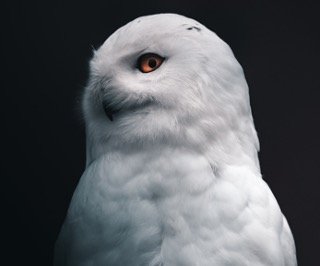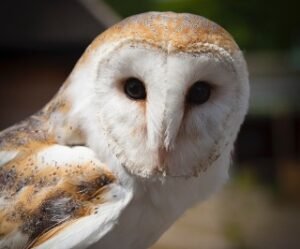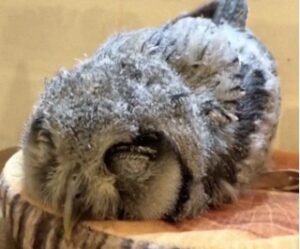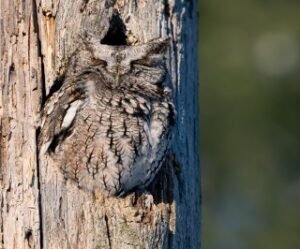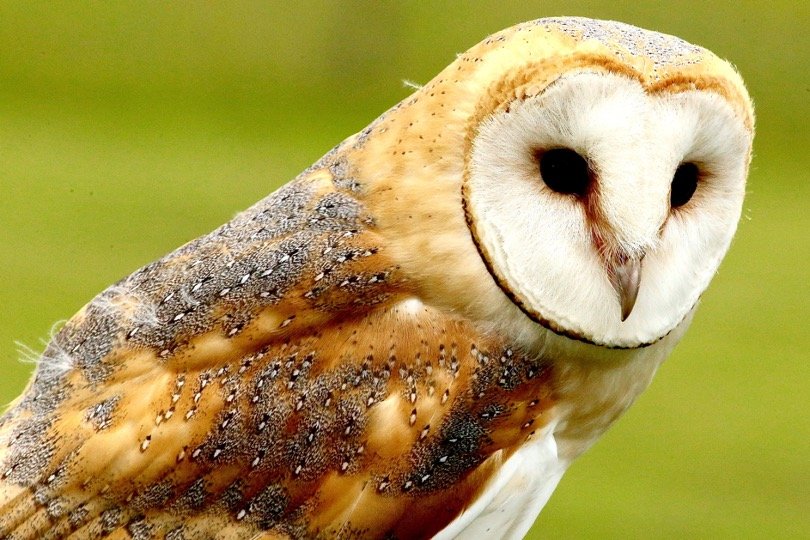
Barn Owl Meaning and Symbolism
Finding this ghostly-pale bird may pique your interest because they are rarely spotted during the day or in close proximity to humans. They have a lovely mix of white, brown, and grey plumage that covers their entire body.
However, solely because of its look and unusual plumage, this magnificent bird has a lot of mystique and symbolism associated to it. Surprisingly, this owl was supposed to represent something just because of its dark hollow eyes.
Nonetheless, the barn owl has been witnessed to go about its daily routine like other birds do, which is fascinating given the superstitions surrounding it. Barn owl symbolism is linked to how they conduct their lives.
Because these owls are concealed during the day, many believe they represent knowledge, stillness, and mystique. Although there is no solid evidence to support the idea that barn owls bring ill luck, most cultures see them as a terrible omen.
What Does Seeing A Barn Owl Symbolize?
Because of how they are seen in diverse cultures, these secretive birds of the night are depicted as fascinating animals. In many cultures, they are connected with witchcraft, darkness, and supernatural encounters. But does this imply that witnessing a Barn Owl has any significance?
In a spiritual sense, sure. Furthermore, science doesn’t really substantiate any of the assertions that owls represent various things because barn owls are simply like any other bird with the exception of a distinct sleep pattern.
Did You Know?
Throughout many cultures, barn owls and owls in general are connected with death. People gave the bird its own meaning and connected symbolism since they did not have enough understanding about the bird to justify their nocturnal lifestyle and sleeping patterns back in the day when they did not have the means to investigate it.
White Owl: Meaning, Symbolism, Totem, & Myth
People are forgetting the myths and legends about owls now that they understand how they behave in the wild. Except that individuals from many civilizations continue to believe that they represent something enigmatic. Continue reading to learn about how various cultures regard this nocturnal bird.
Symbolism Of The Barn Owl In Christianity
The barn owl was viewed as a sign of wisdom hidden by darkness and evil in Christianity. It effectively alluded to what was concealed behind the veil of darkness, implying that when darkness passes, there are crucial lessons to be learned. Theirs is deep wisdom obscured by darkness, and it may tell us a lot about our moral fortitude.
Barn Owl Symbolism In Native America
The barn owl was revered in Native American culture as a symbol of death, change, and rebirth, as well as future and spiritual portent, mystical indications, and the mystery that lurked beyond obscurity.
Egyptian Symbolism Of Barn Owl Owls have long been regarded as a sign of darkness and occult wisdom guarded against anyone who doesn’t deserve to possess it in ancient Egyptian society.
Their gloomy characteristics were praised because they were supposed to be linked to the unknowable mystery of the afterlife.
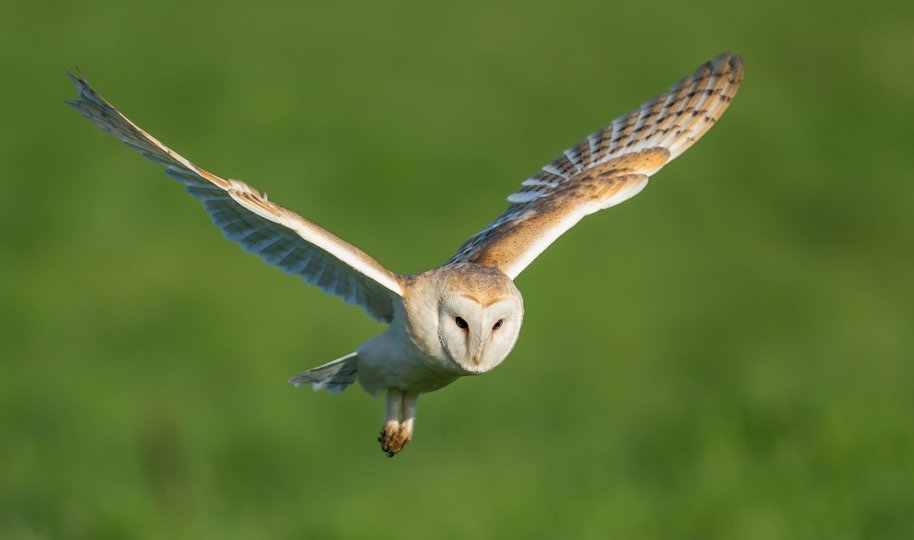
Chinese Symbolism Of The Barn Owl
Owls signify wisdom, defense, understanding, and intuitive perception in the Fend, Shui Chinese culture. Their cheerful presence is related with good luck and improved security, that can help to keep negative energy out of one’s house.
Despite the fact that there are several flaws in the symbolism linked with barn owls, certain people remain steadfast in their views. But it’s reasonable to say that recent scientific study has given the barn owl a new lease on life, devoid of its connotations.
Are Barn Owls Good Or Bad Luck?
In some civilizations, these nocturnal birds of immense mystery are regarded as either good or bad luck. However, we’d like to remind you that luck has nothing to do with seeing a certain bird.
5 Simple & Proven Ways To Attract Owls To Your Yard
In truth, research has long proven these misconceptions to be false, determining that owls are simply nocturnal birds that are most active at night owing to their nature and sleep cycle. That being said, let us proceed and investigate why they might want to be regarded good or bad luck in various cultures.
Barn Owls Have Unusual Sleep Cycle
Barn owls are well-known for their peculiar sleeping habits. They are nocturnal species that stay up at night in search of food and tiny mammals to feed on.
As a result, they are rarely observed during the day, with the exception of derelict barns and homes wherein they roost and rest. As a result of their reputation for being enigmatic and mysterious, they are often regarded as unlucky in most religions and civilizations.
Barn Owls Have Dark Hollow Eyes
Barn owls have black eyes, which distinguishes them from other owl species. Because of the way their eyes seem, they have an unsettling aura that surrounds them. As a result, when humans see them at night, they are generally terrified, particularly when the bird glances directly at them.
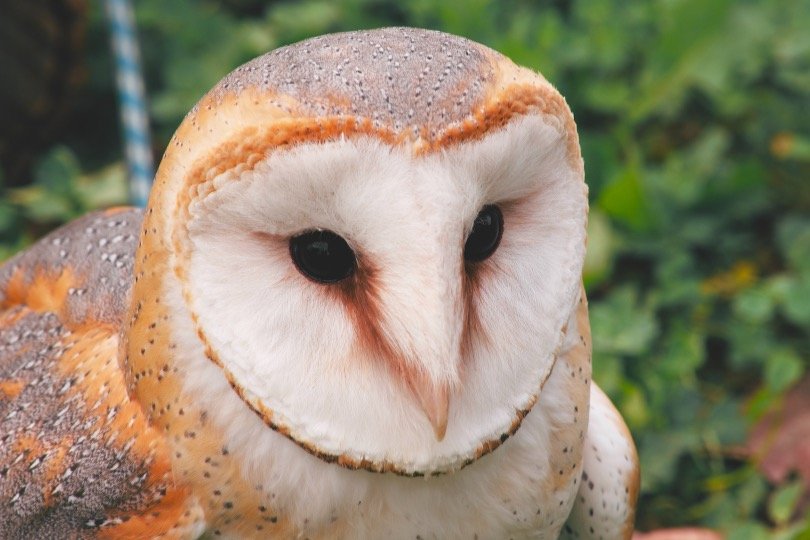
Barn Owls Haves A History Of Association With The Witches
Barn owls and owls in general have long been connected with witchcraft and sorcery. Most cultures believe that hearing an owl hoot indicates that a witch is attempting to contact you. Even though there is little evidence supporting this belief, it is nonetheless widely held.
Barn Owls Mostly Found In Abandoned Houses And Barns
Barn owls are often found in abandoned buildings and barns because they prefer to sleep away from the noise and bustle of cities. Regrettably, for many individuals, this indicates the existence of an evil spirit inside the home or location where it is placed.
Some Common Myths About The Barn Owl
Although it is obvious that barn owls are just normal birds acting on their natural impulses, there are a number of tales surrounding them that equate them with death, knowledge, and, at times, malevolent spirits. Continue reading to know more about these fascinating myths that will undoubtedly astound you.
Myth #1: The Legend Of Banshee
This widespread myth began in Ireland when people were unfamiliar with the sound of the barn owl. Banshee was thought to come and prowl around the homes of persons who were due to die in a painful or violent manner.
Although it was rarely seen, it was claimed that a wrinkled elderly lady would scream at their door at night, specifically if they lived near woods or open forested regions. Nonetheless, realists and sceptics argue that the scary tale was nothing but a superstition, a narrative given to induce fear of venturing outside at night.
Sleeping Owls Are So Adorable: Pictures & Fun Fact
Later, the story was refuted, and the true cause of the wailing sound was discovered—it was just barn owls and vixens calling in the night, as both are nocturnal and only active at night. And if you’ve ever heard a barn owl’s cry, you’ll notice that it sounds nearly like a scream, which can be mistaken for a woman’s wailing.
The Banshee is depicted as an ancient elderly woman with an unattractive look who wears white or grey clothing and has silver hair. The lady was reported to transform into a crow or a weasel, both of which are linked with witchcraft and sorcery in Ireland.
Myth #2 Newuks Myth
The Newuks, a California Native American tribe, considered that courageous and honourable warriors were transformed into great horned owls after death. On the other side, evil individuals were thought to transform into barn owls.
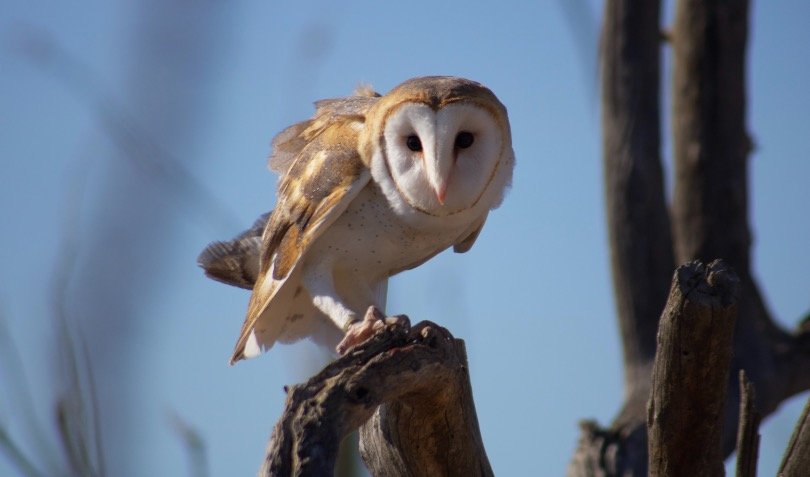
Myth #3: Stories From Different Cultures
There are also terrifying stories about owls in other cultures: in Africa, for example, it was thought that Barn Owls were sent by wizards to slaughter people or were evil spirits that predicted disasters.
They were regarded as the devil’s sisters in Argentina; the basis for this belief is uncertain, but it had something to do about how this bird screeches at night. For each of these reasons, they were connected with severe illnesses and death in Sicily; they were chased, tormented, and slaughtered.
Myth #4: Bar Owls Represent The Greek Goddess Of Wisdom
Although the barn owl is connected with a number of detrimental tales, some myths think that the barn owl is a benevolent spirit. When they are seen, they can have a good impact on one’s life.
Where Do Owls Nest? Everything You Need To Know
They depict the Greek goddess of knowledge, Athena, and are still used to represent a variety of institutions and coinage. They are also said to be the protectors of women who die. This tale is said to have originated in Australia.
Myth #5: Indian Mythology
Barn owls are regarded vehicles (vahanas) of Lakshmi, the goddess of prosperity, in Indian mythology. Some consider an owl spotting during the Diwali festival to be extremely lucky, while others may go to amazing lengths to obtain the good fortune associated with the barn owl. According to this belief, owl sacrifices are performed in North India to gain financial security.
Myth #6: The Iberian Peninsula Myth
It was formerly thought that the barn owl devoured the oil from the lamps that lighted up the churches, putting priests and saints in complete darkness at night. This led people to assume that the bird despised light and despised it so much that they would turn off the lights just because they couldn’t take it.
There is a Spanish proverb that alludes to the aforementioned tale. According to legend, barn owls were pursued, slaughtered, and hanged just outside the church doors to discourage them from returning and taking oil from the lights.
Baby Owl Sleeping Face Down Is Unbelievable (With Picture)
The vocalisation of this bird is a popular myth found in practically all civilizations. It is thought that their sounds are death notices, and there is a false idea that if someone hears an owl shriek for several nights, they will die.
Take Away Message
Isn’t it strange how humans in the past made such assumptions and connections about a simple bird like the barn owl? Their eerie, ghost-like look is intriguing, but linking it to good or bad luck is incorrect.
These birds are live creatures with symbolic meanings in various cultures and faiths, but claiming that they control your fortune is far-fetched. Because of their appearance, owls have long been associated with wisdom, death, and mysticism.
Barn owls, in particular, stand out from all the other birds due to their pale plumage and creepy hollow eyes, which give them a colder, eerier aspect. To assuage your fears, these are simply ordinary birds with an erratic sleep cycle.
If you’re intrigued by what you’ve discovered about owls, keep reading to find out if crows are good or bad luck, as well as some of the prevalent cultural beliefs and superstitions linked with them.
